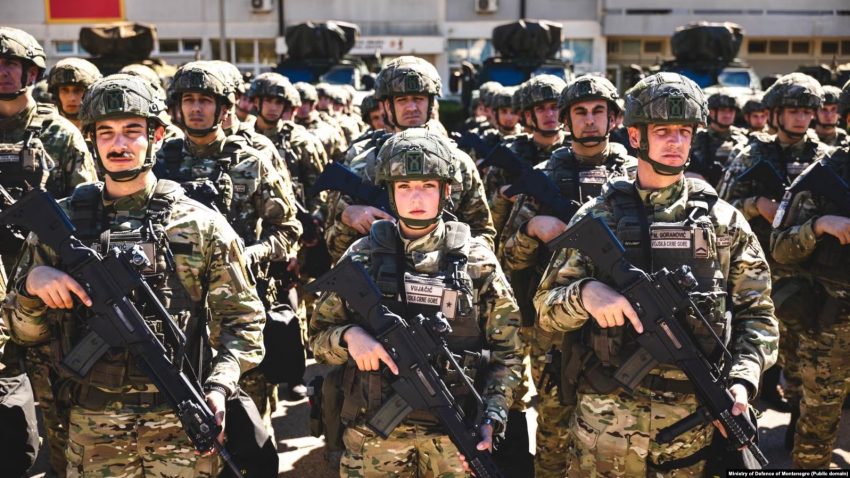Montenegro has not been invited to join the defense cooperation agreement signed on March 18 between the defense ministers of Kosovo, Albania, and Croatia. This agreement focuses on strengthening defense cooperation, enhancing peacekeeping efforts, and tackling hybrid threats. Despite being a NATO member alongside Croatia and Albania, Montenegro was not included in the declaration.
The Ministry of Defense of Montenegro confirmed to Radio Free Europe (RFE) that it was unaware of any offer to sign the declaration, indicating no official invitation was extended. The declaration emphasizes joint defense actions, support for NATO’s open-door policy, and efforts to combat hybrid threats. Croatia’s Ministry of Defense announced that the door is open for other countries to join the agreement in the future.
Montenegro, which shares borders with all three countries, is committed to strengthening its cooperation with neighboring nations and promoting the region’s Euro-Atlantic vision. In a statement, Montenegro’s Ministry of Defense reiterated its dedication to supporting the NATO mission in Kosovo (KFOR), a crucial factor in maintaining peace and security in the region. Montenegro, as a NATO member, continues its role in KFOR, which it vows to uphold in the future.
While Montenegro’s exclusion from this military alliance raises questions, former Chief of Staff of the Montenegrin Army, Dragan Samarxhiq, told RFE that it was unrealistic to expect Croatia to extend an invitation to Montenegro at this time. The strained relations between the two countries, particularly following Montenegro’s adoption of the Jasenovac Resolution in 2024, have made such cooperation less likely. Relations further deteriorated when Croatia declared several high-ranking Montenegrin officials persona non grata in 2024, accusing them of actions that undermined good relations with Croatia.
Despite these challenges, Samarxhiq noted that if the relationship between Croatia and Montenegro improves, there could be a future opportunity for Montenegro to join the defense pact. However, he also pointed out that Montenegro’s current government is divided on its Euro-Atlantic path, and internal political disputes may prevent the government from responding positively to such invitations.
The current Montenegrin government, which includes representatives from the pro-Russian Democratic Front (DF), remains opposed to Kosovo’s independence and the country’s NATO membership. The DF’s influence within the government has further complicated Montenegro’s foreign policy stance.
While Montenegro’s exclusion from the military alliance for now may seem like a setback, the situation remains fluid. Analysts suggest that if the political climate changes, Montenegro could still find itself at the table with its regional partners in the future.







